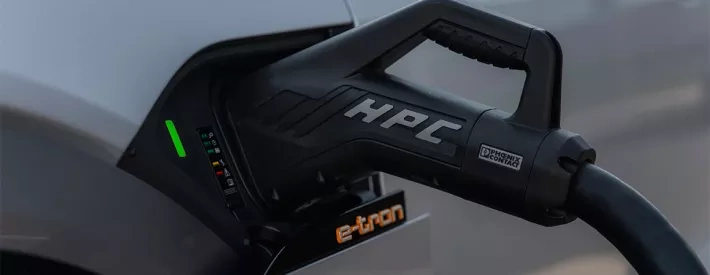An electric future… but where to plug in?

There’s a real buzz around EVs right now, but charging is still going to be key, whether you’re at home, on the road or at work. MotorPro takes a look at the different options
Now that the government has decided that sales of new petrol and diesel vehicles will come to an end in 2030, questions have once again been asked about whether or not the UK’s charging infrastructure will be able to cope with a surge in demand from new EV owners.
Compared with liquid fuels, recharging an EV could appear a tad confusing, given the broad array of charging options and speeds available. So, whether you’re looking for private or business use, here are the options…
The humble three-pin plug
While it’s possible to recharge an EV from a normal plug socket, it will take a long time (around 17 hours to refill a 40kWh battery from zero to 100%). It can also be dangerous, since the socket will be running at 2.3kW, close to its 3kW maximum, for hours on end. As such, this approach is only recommended as a last resort – or perhaps as a short-term solution while you wait for something grander to be installed.
Home charging point
A much better long-term solution is to install a dedicated charging point. The most popular versions are 7kW and will recharge a 40kWh battery in six hours (ie, overnight). Energy suppliers are increasingly offering EV charging tariffs for customers to support the installation of these charging points.
The price of charging points varies depending on the brand, but the government’s Electric Vehicle Homecharge Scheme (EVHS) provides up to £350 off the cost of purchasing and installing a home charging point, while Scottish EV owners can claim an additional £300 through the Energy Saving Trust. More powerful charging points can also be installed, but they require a three-phase electricity supply.
Public network
If you travel a significant distance, you’re most likely going to spending time recharging via public networks. Critics complain that there aren’t enough charging points to serve everyone, but the number of points being installed is increasing at a rapid rate. At the time of writing, EV charging map website Zap-map.com had added 425 points onto its map in the last 30 days and showed more than 20,000 public charging points across the country.
These charging points are operated by a range of different companies. Some will be familiar, such as Shell Recharge and the ubiquitous Tesla Supercharger network, but others include newer arrivals such as Osprey and Instavolt.
Public charging point speeds can vary hugely – for instance, BP Chargemaster’s 150kW chargers can add 100 miles of range in 10 minutes – and while in the past EV drivers had to drive around with a wallet full of subscription cards to access these points, the government’s Alternative Fuels Infrastructure Regulations, introduced in November 2017, require operators to allow ad-hoc access to charging points installed after 18 November 2017. The regulation states that “ad-hoc access means the ability for any person to recharge an electric vehicle without entering into a pre-existing contract with an electricity supplier to, or infrastructure operator of, that recharging point”.
Essentially, this means that operators have to accept credit/debit card or contactless payments without a pre-existing contract being in place and without storing personal or payment information. Theoretically, this means that charging on the move is as easy as buying something online using the guest check-out option.
Business charging
Prior to the COVID-19 outbreak, workplace charging was becoming increasingly popular. And for automotive businesses, it will soon become a necessity to have charging points installed, whether it’s for use by staff or customers – or simply as a general business requirement, as more EVs take to the streets and roll into workshops.
In a similar vein to EVHS, the government also runs a Workplace Charging Scheme, offering a grant of up to £14,000 to help businesses cut the cost of installing EV charging points for staff (£350 towards the cost of each charging point installed, up to a maximum of 40 sockets). This grant can’t be used to install points for the sole benefit of customers.
The charity Zero Carbon World is also currently giving free 7kW and 22kW charging points to businesses, tourist attractions and leisure facilities (although the recipients will have to cover the installation costs), which could help a lot.




